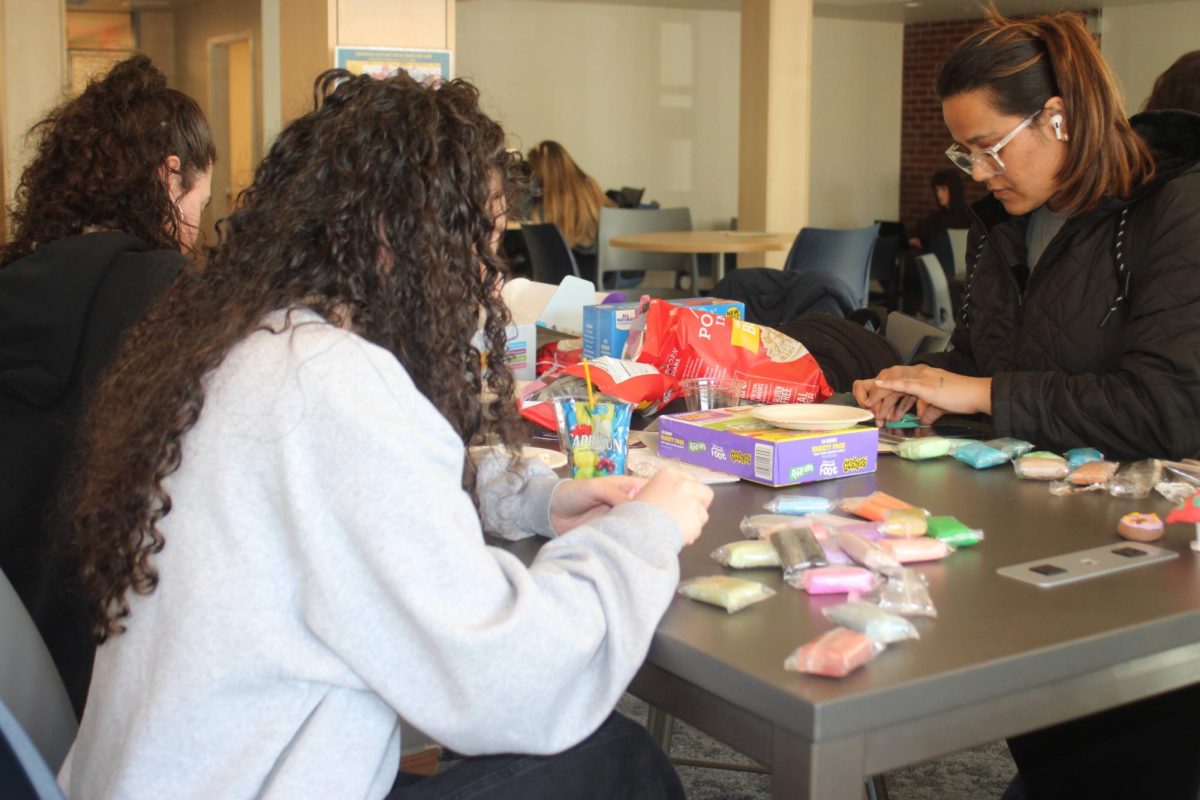
Last month, resident advisors in Forest Hills Apartments held an event in which they gave sex toys and condoms to residents. Handing out incentives for attendance is common for residential staff, resident life staff members say. Sometimes, those rewards are stickers, snacks or candy.
But the February event was promoted as a sex education program and the advertisement for the event included information on prizes and incentives. Attendance was optional for any residential students.
And while the initiative was intended to promote sex education and safe sex practices, a student complaint led to the future elimination of the distribution of sex toys as an incentive for attending residential events.
According to Curtis Clark, director of campus life & student support, various sex education programs have been sponsored by the Office of Residential Life (ResLife). At many of these events, free sex toys and devices were given to students. But now that’s changed.
“The Office of Residential Life will continue to provide sex education programming and offer prizes and incentives,” said Clark. “We will no longer provide personal sex toys or devices.”
Clark said that residential students at New Haven are charged a $50 activity fee each semester which supports funding programs, events and activities hosted by the ResLife office. After a student complained to staff about the sex toys, the program was altered and going forward, prizes will be safe sex kits that include condoms, educational literature and lollipops.
“We recognize that some events involve sensitive and personal topics,” said Clark. “As the director of campus life and student support, I continually look at the programming we offer and the allocation of prize funds to determine what best serves the residential population.”
According to Clark, students are not shy about giving feedback about ResLife programs and events. Staff then use the feedback to adjust certain programs and make changes they deem fit.
Clark said the purpose of the program was to promote safe sex practices and educate residents. Many colleges across the country have implemented similar initiatives to promote students’ practice of safe and protected sex.
According to a spring 2019 National College Health Assessment, 67% of surveyed students had at least one sexual partner in the previous year, but only 53% used a method of contraception the last time they had sexual intercourse. A Centers for Disease Control and Prevention’s Sexually Transmitted Disease Surveillance 2021 study said half of reported sexually transmitted infection and disease cases were among teens and young adults between the ages of 15 and 24 years old.
Sexual education is common among universities and is often directed at first-year and residential students. According to Reslife.net, young adults are commonly at risk for sexually transmitted diseases and unintended pregnancy because they often have multiple partners and have received little education on sexual health and responsibility. They are also often unaware of resources for STD prevention information, treatment options and safe sex supplies. The implementation of sexual education and wellness programs is one step toward promoting safe and comfortable sex for students in colleges and universities.







